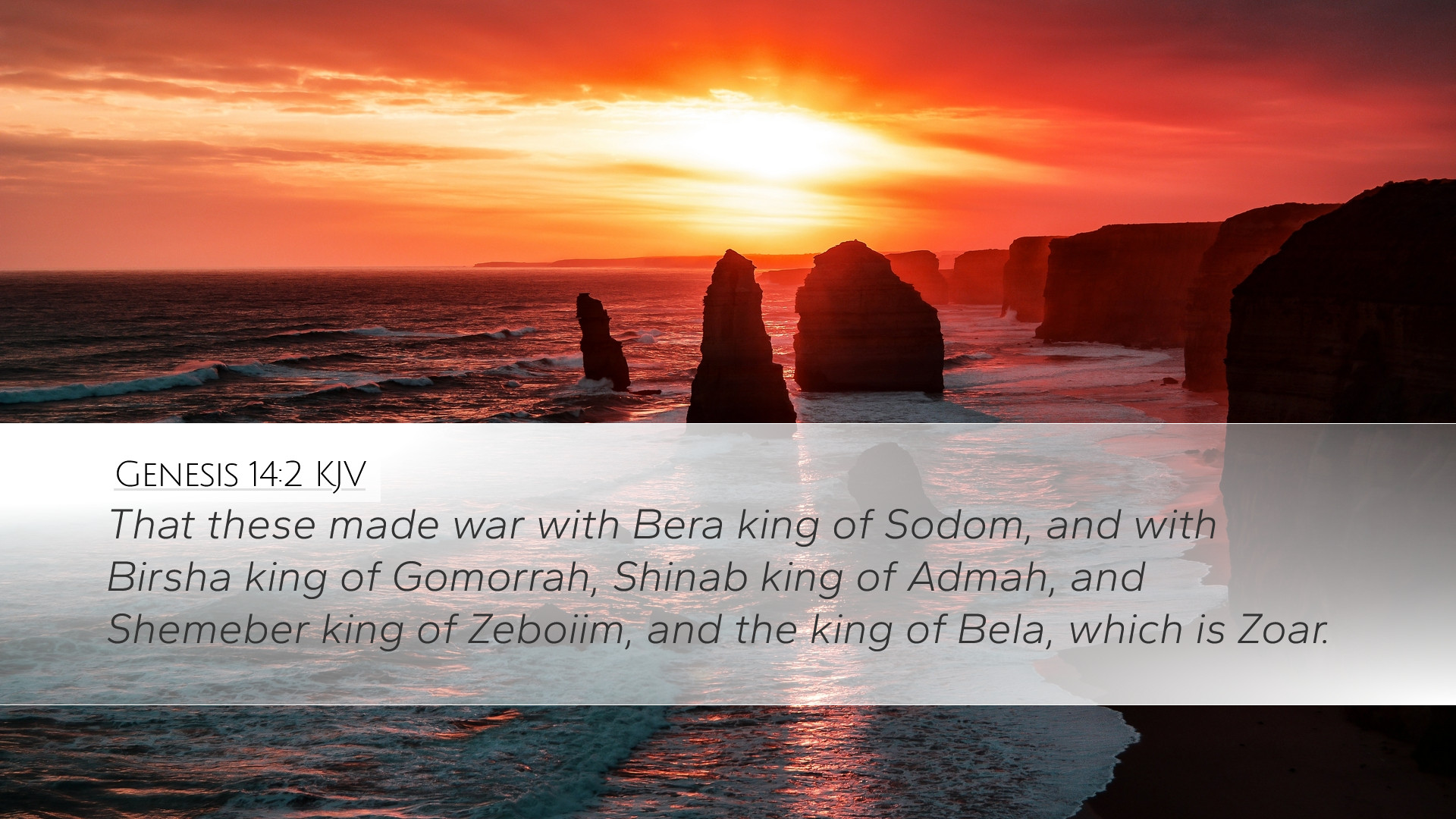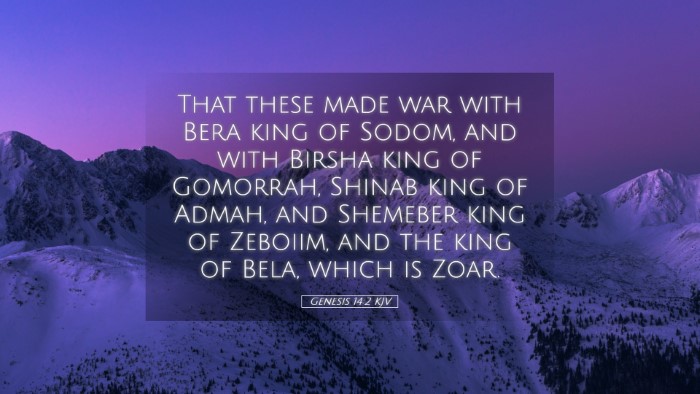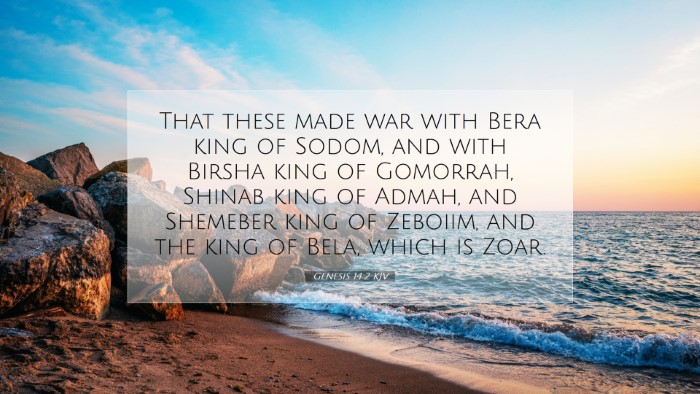Commentary on Genesis 14:2
Verse: Genesis 14:2
"That they made war with Bera king of Sodom, and with Birsha king of Gomorrah, Shinar king of Admah, and Shemeber king of Zeboiim, and the king of Bela, which is Zoar." (Genesis 14:2, KJV)
Contextual Overview
The narrative of Genesis 14 presents a significant historical moment involving a coalition of kings in the vicinity of the Dead Sea. This chapter is pivotal not only for understanding the geopolitical landscape of the time but also for appreciating the unfolding story of Abraham, his faith, and God’s covenant with him. The conflict illustrates the tensions between various city-states, reflecting the broader themes of righteousness and evil.
Insights from Commentaries
Matthew Henry's Commentary
Matthew Henry emphasizes the importance of the historical narrative. He notes that the names of the kings—Bera, Birsha, etc.—represent the cities of Sodom and Gomorrah, which were notorious for their wickedness. Henry suggests that the coalition's actions serve as a backdrop to Abraham's subsequent actions and highlight the moral decline of society during this era. He observes:
- The alliances formed by these kings were typical in ancient Near Eastern politics, often resulting in conflicts that echoed this alliance of sin and immorality.
- Henry also points out that this conflict prefigures God’s judgment on Sodom and Gomorrah, which would come later due to their rampant wickedness.
Albert Barnes' Notes on the Bible
Albert Barnes provides a meticulous analysis of the kings involved in this conflict. He describes the geographic implications of the struggle for power amongst these city-states and highlights the significance of Sodom and Gomorrah as emblematic of moral corruption:
- Barnes notes that Sodom's name is linked with sin and moral decay; hence, the mention of its king, Bera, indicates a broader narrative of judgment.
- The wars between these cities can be seen as not just physical battles but spiritual ones, embodying the struggle between good and evil.
Adam Clarke's Commentary
Adam Clarke elaborates on the socio-political dynamics of the region. He agrees with others that the names mentioned reflect both a historical reality and serve prophetic significance, indicating what is to come for these cities:
- Clarke mentions that “Zeboiim” and “Bela” (Zoar) denote significant centers of trade and culture, which were pivotal in the larger framework of the region’s economy.
- In Clarke’s view, the mention of these kings serves not just to establish context but foreshadows the impending divine judgment, emphasizing God’s sovereignty over nations and rulers.
Theological Implications
A deeper theological reflection on Genesis 14:2 reveals critical insights into the nature of sin and its consequences. The coalition of kings symbolizes the unholy alliances that form in the absence of righteousness:
- This segment of Genesis invites readers to reflect on God’s omniscience and justice, as the eventual fate of these cities will serve as a stark warning against immorality.
- It also illustrates God’s providential care, as Abraham is drawn into this conflict not merely as a passive observer but as an agent of divine intervention.
Application for Today’s Believers
For contemporary Christians, Genesis 14:2 offers several practical applications:
- It calls believers to recognize the spiritual battles occurring in their contexts and the importance of standing for righteousness amid a culture that may be compromised.
- The dynamics of the coalition armies remind us to remain vigilant against the allure of worldly allegiances that can distract from our covenant relationship with God.
- Finally, it encourages an awareness of the broader implications of sin within communities and the call to intercede, much like Abraham does later in the chapter.
Conclusion
Genesis 14:2 serves as a profound reminder of the impact of human alliances and the overarching narrative of God's judgment against sin. The commentary from reputable sources illustrates the rich historical context, theological significance, and application for believers today. As pastors, students, theologians, and Bible scholars engage with this text, they uncover layers of meaning that speak to the heart of the biblical narrative and its relevance for living a life of faithfulness.


